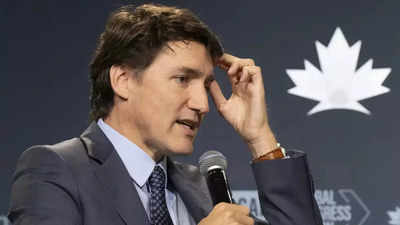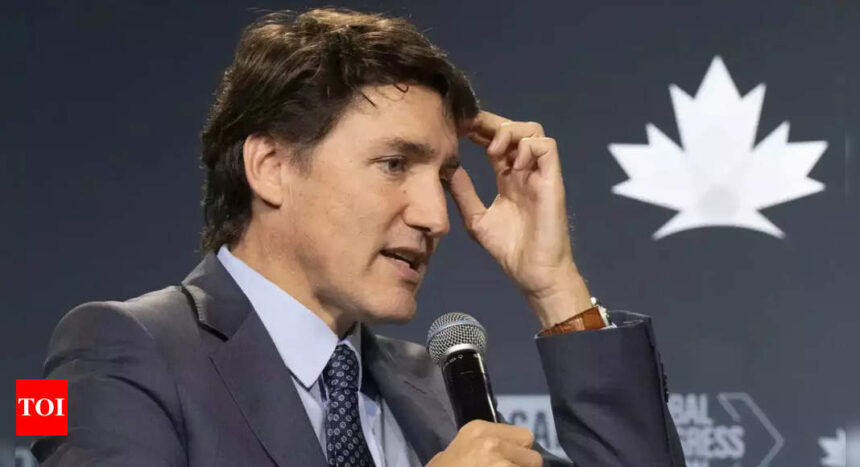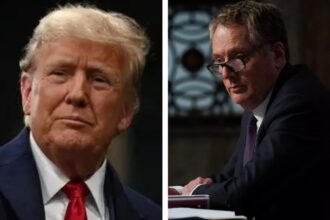
The chorus is growing for Canadian Prime Minister Justin Trudeau to resign amid an internal revolt by Liberal MPs. This latest revolt comes amid escalating diplomatic tensions between India and Canada over Trudeau’s handling of Khalistani separatism.
While Trudeau’s leadership teeters on the brink, the Canadian PM faces a far more significant threat than internal political discord: His country’s potential descent into a perilous trajectory akin to Pakistan’s, should he continue his passive stance on Khalistani separatism.The world has seen how Pakistan’s coddling of terrorist factions, once hailed as a geopolitical strategy, spiralled out of control and backfired spectacularly. Many experts are warning that Canada may be following a dangerously similar path.
The echoes of Pakistan
In Pakistan’s case, the state supported terrorist organizations like Lashkar-e-Taiba and Taliban, hoping to leverage them for strategic gains in India and Afghanistan. Over time, these groups became too powerful to control, eventually turning on the state itself.
“You can’t keep snakes in your backyard and expect them to only bite your neighbour,” Hillary Clinton famously warned Pakistan during her tenure as US secretary of state. The same warning may come true for Canada if it continues to turn a blind eye to the activities of the Khalistani movement.
A short-term strategy, long-term disaster
At first glance, Trudeau’s approach might seem politically expedient. His alliance with Jagmeet Singh’s New Democratic Party has kept his minority government afloat, allowing him to weather confidence motions in Parliament. The Sikh population, although small in number, wields disproportionate political influence in several ridings due to its concentrated geographic presence. But this approach has its costs.
India has repeatedly raised concerns that Canada is a hub for Sikh extremism outside India, accusing Trudeau of allowing anti-India separatist activities to flourish for political gain. This has led to strained relations between the two nations. Diplomatic relations between the two nations have reached a historic low, with mutual expulsions of diplomats and escalating rhetoric.
To make matters worse, Trudeau has now admitted in a public inquiry that he had “no hard evidentiary proof” when he went public with allegations against India, relying primarily on intelligence that remains murky.
The Khalistani network: A criminal enterprise
The Khalistani network is far from being a mere ideological or separatist movement. It is a well-oiled, transnational criminal enterprise. From drug smuggling to money laundering, the movement’s activities stretch across continents. In the 1990s, Canadian authorities became aware of these activities when drug dealers associated with Khalistani organizations were murdered in gang-related violence. And as recently as 2023, prominent Canadian journalists of Indian descent have faced violent attacks for speaking out against the Khalistanis, with little action from law enforcement.
Ignoring the warning signs
Despite these developments, Trudeau’s administration seems reluctant to address the growing threat. Government experts once took Khalistani extremism seriously, referencing it in their annual public reports on terrorism. But those references have since been scrubbed, reportedly under pressure from the powerful Sikh lobby. In a curious twist of history, Canada, which once stood firm against terrorism, has allowed political considerations to erode its vigilance.
Just as Pakistan is now grappling with the consequences of its leniency towards extremist factions, Canada may find itself in a similar predicament if it does not swiftly recalibrate its policies. The Khalistanis, emboldened by perceived Canadian protection, may soon turn their violence inward. Already, Indo-Canadian citizens, including journalists and business owners, have become targets of intimidation and extortion, with limited recourse to law enforcement.
The economic and diplomatic fallout
India, one of the world’s fastest-growing economies and a pivotal player in global geopolitics, has made it clear that it will not tolerate Canada’s equivocation on terrorism. New Delhi’s expulsion of Canadian diplomats and withdrawal of its high commissioner is just the beginning. India may reduce trade ties, undermining Canada’s economic interests.
The economic fallout could be severe. Canada exported $3.8 billion worth of goods to India in 2022, and those numbers are expected to shrink dramatically if relations continue to sour. Furthermore, with India becoming an increasingly critical player in global supply chains, Canada risks being left out of key trade agreements in Asia.
What they’re saying
Liberal MP Sean Casey acknowledged that the Trudeau government has become the primary concern for voters in his constituency: “The people I represent have tuned him out, they’ve had enough, they want change.” His comments reflect a broader disillusionment within the party about Trudeau’s handling of key issues.
“What we have heard today only confirms what we have been saying consistently all along – Canada has presented us no evidence whatsoever in support of the serious allegations that it has chosen to level against India and Indian diplomats. The responsibility for the damage that this cavalier behaviour has caused to India-Canada relations lies with Prime Minister Trudeau alone,” the MEA said in a statement.
Time for a reckoning
The chorus calling for Trudeau’s resignation is growing louder within his own Liberal party. Several MPs, including Sean Casey of PEI, have voiced their concerns, not just about domestic policy failures but about the larger, looming crisis Trudeau’s foreign policy missteps have created. With public dissent mounting, the Prime Minister may have to face a political reckoning sooner than anticipated.
(With inputs from agencies)








